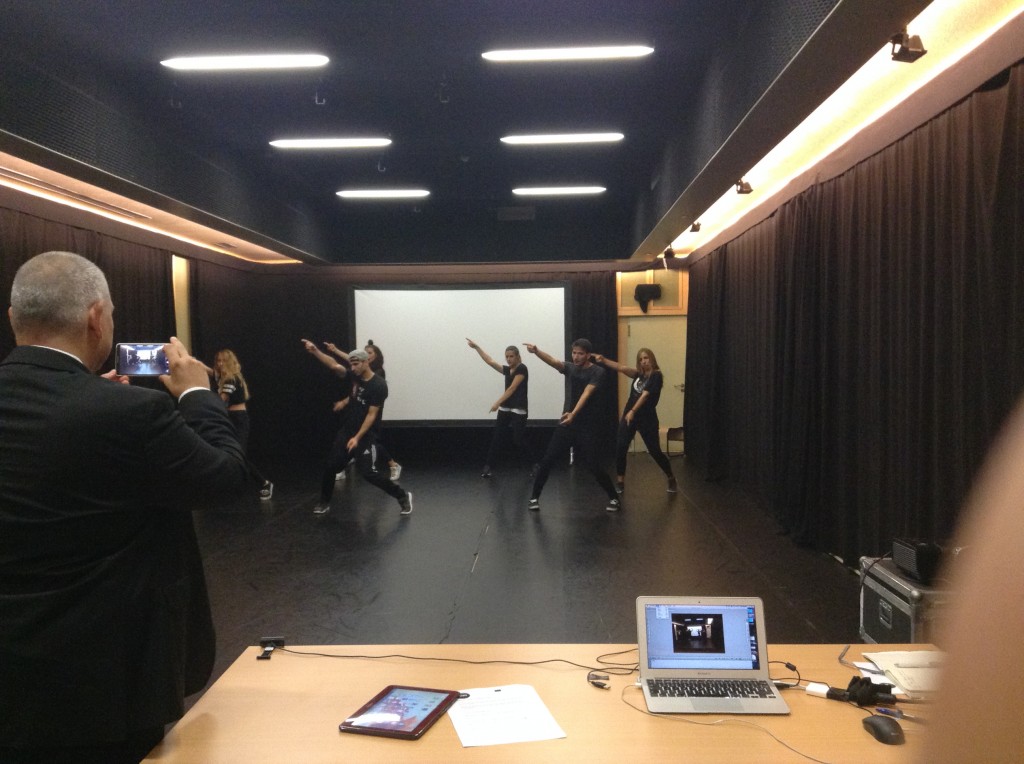|
Digital meets Culture https://www.digitalmeetsculture.net/article/e-space-dance-pilot-testing-sessions-in-athens/ Export date: Thu Apr 3 3:37:02 2025 / +0000 GMT |
E-Space Dance Pilot: Testing Sessions in Athensby Hetty Blades (Coventry University), Alex Stan and George Ioannidis (IN2) The second round of user testing and evaluation of the two Dance Pilot applications, DancePro and DanceSpaces, took place on 27th and 28th September. The event was held at the beautiful Onassis Cultural Centre in Athens, and was organised by Sarah Whatley, Rosemary Cisneros and Vassilis Panagiotakopoulos, alongside the Dance Pilot team. Over two days George Ioannidis (IN2) and Hetty Blades (Coventry University) worked with participants from a range of backgrounds including dancers, choreographers, researchers and educators to consider the usability and potential uses of the tools for dance practice, analysis, teaching and documentation. The findings were very interesting and really highlighted the multitude of ways in which such tools might inform and facilitate engagement with dance, both in and out of the studio.  The re-worked DanceSpaces tool offered a number of improvements over the previous versions. Apart from the many behind-the-scenes improvements that the technical team made to the gears that power DanceSpaces, what caught the eye was a friendlier and more polished interface. The people testing the tool found it very easy to re-use existing content around dance and create their own fascinating collections based on specific topics of interest. In order to analyse DancePro we worked with dancers and choreographers, who were recorded performing both improvised and set material from a range of styles, including hip-hop and contemporary dance. The participants then used the tool to analyse themselves dancing, inscribing through drawing and language to draw attention to features of the movement. The use of the ‘think aloud' methodology, discussion and questionnaires allowed us to gather extensive informative data to contribute to the next stage of development. Generally speaking, participants seemed very interested in the potentials of the tools, demonstrating the relevance and importance of this research. There seems to be an appetite for thinking about how digital technology can interact with dance practice and documentation in innovative ways. The Dance Hackathon, which will take place in Prague in November will further explore this area, providing an opportunity for participants to engage in and experiment with innovative digital dance tools. |




